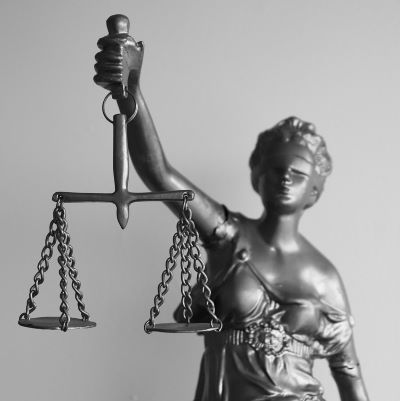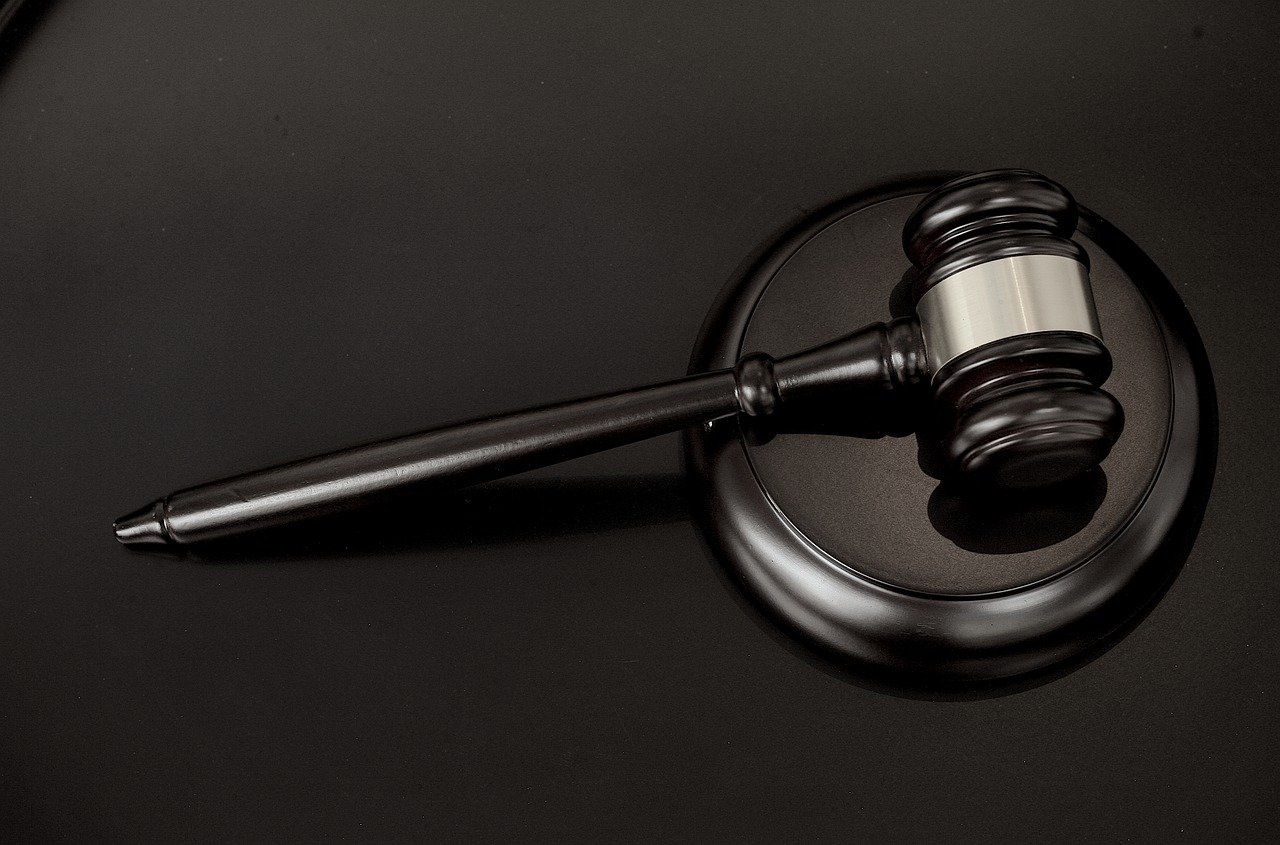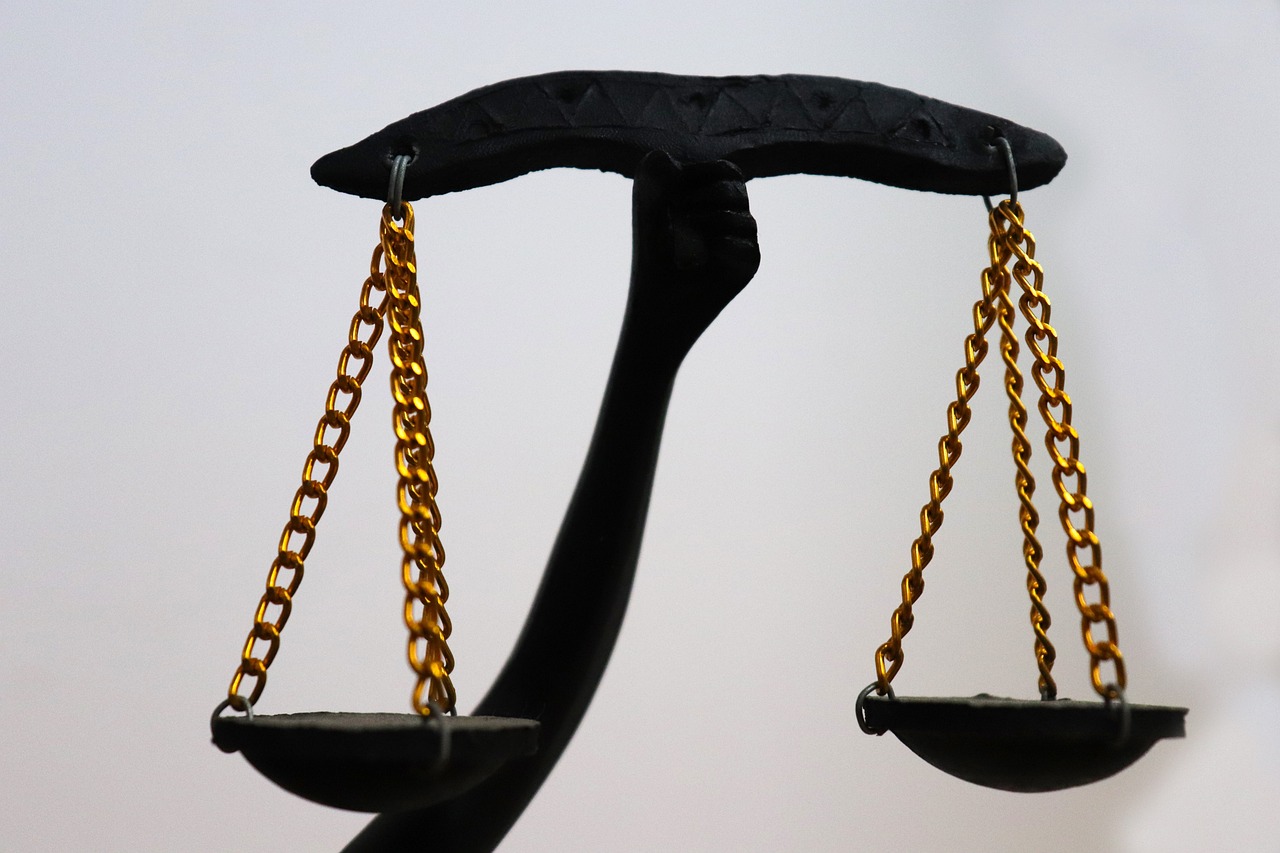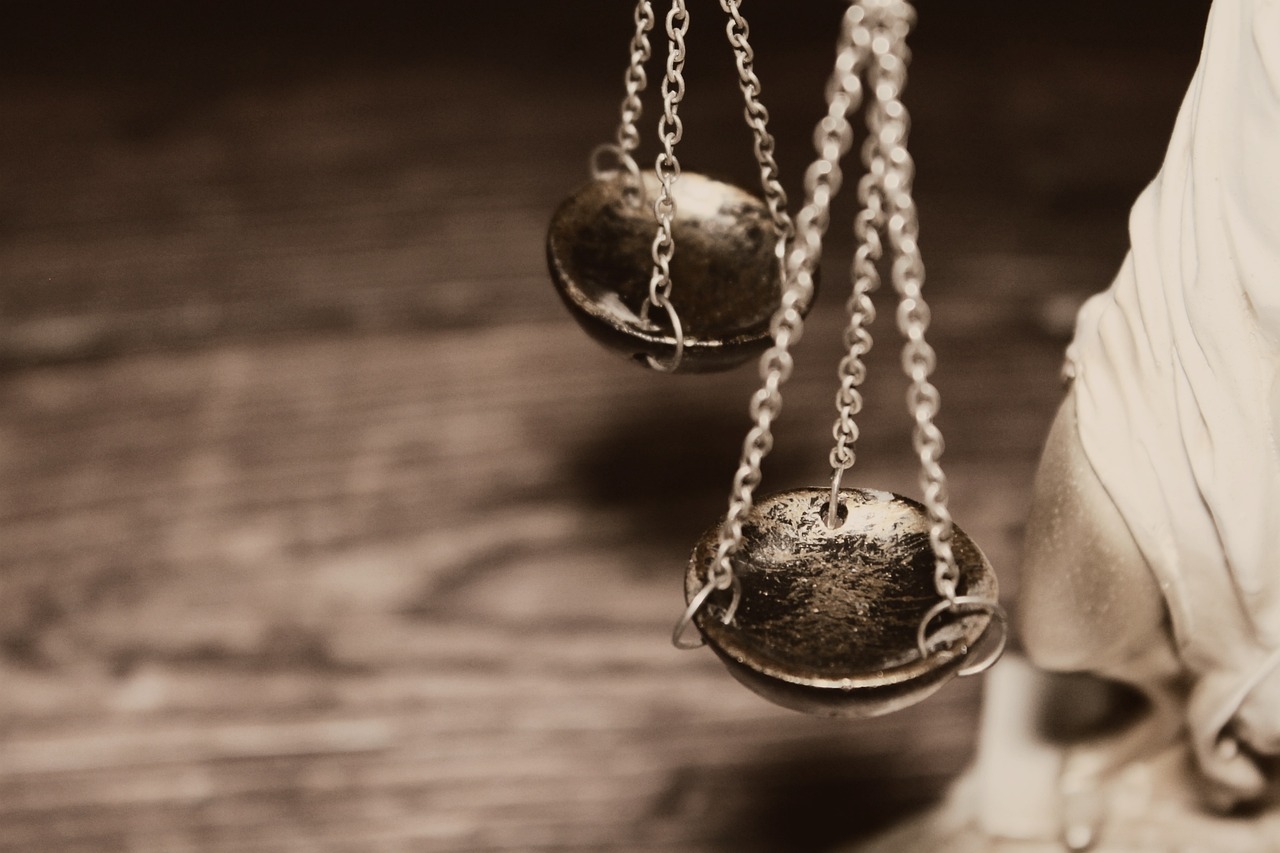
Zero Tolerance for Law Firm Malpractice
Law Firm Mal Practice” podcast delves into the intricate realm of legal ethics, examining cases of professional misconduct and negligence within law firms. Each episode dissects real-life scenarios, from breaches of client trust to mismanagement of cases, offering in-depth analysis and insights into the complexities of legal malpractice.
Hosted by seasoned legal experts and industry insiders, the podcast navigates through the nuances of ethical dilemmas, regulatory frameworks, and the consequences of malpractice. Whether you’re a legal professional, student, or simply intrigued by the legal world, “Law Firm Mal Practice” provides compelling narratives and valuable lessons on maintaining integrity and accountability in the legal profession.


Years of service


news and event
Stay updated on current affairs and happenings with our comprehensive coverage of news and events from around the world.
Receiving a cell phone Fight cell phone tickets in Bronx court can be frustrating and expensive, but it doesn’t necessarily mean you have to pay the fine without a fight. Many drivers are unaware that they can contest these tickets in court, especially in the Bronx, where the rules and procedures may vary from other boroughs. If you’ve been cited for using your cell phone while driving, it’s important to understand how to fight these tickets and increase your chances of having the charge dismissed or reduced.
Cell phone tickets are issued to drivers who are caught using a mobile device while operating a vehicle. In New York City, this includes texting, calling, or even holding the phone in a way that distracts the driver. The fines for these violations can add up quickly, and if you don’t address the ticket properly, you may also face points on your license or an increase in your insurance premiums. However, Bronx residents should know that fighting a cell phone ticket is possible, and there are several steps to take in order to have the ticket dismissed or reduced.
When you receive a cell phone ticket in the Bronx, it’s crucial to read the ticket thoroughly. Ensure that all the information is correct, including the time, location, and specific violation. Mistakes on the ticket, such as incorrect dates, could work in your favor if the case is brought to court. In some instances, the officer may have made an error while filling out the citation, which could lead to the dismissal of the ticket. Reviewing the details carefully is a critical first step in preparing to fight your ticket in Bronx court.
Next, consider gathering evidence that supports your case. This could include phone records, GPS data, or even witness testimony. If you were not using your phone at the time of the alleged violation, or if the officer made an error in assessing the situation, evidence can be vital in disproving the charge. For example, phone records showing that no call or text was made at the time of the ticket could strengthen your argument. Additionally, if there were any issues with the way the officer issued the ticket, such as failing to properly observe the law, these points should be raised in court.
The next step in fighting your cell phone ticket in Bronx court is to decide how to proceed. You can either plead guilty and pay the fine, or you can plead not guilty and request a court date. If you choose the latter option, you will need to appear before a judge in the Bronx to present your defense. It’s important to note that while pleading guilty may seem like the quickest option, it’s often in your best interest to contest the ticket, especially if there are any doubts about the citation’s validity or if you have strong evidence in your favor.
When appearing in Bronx court, be prepared to present your case clearly and professionally. Even if you plan to represent yourself, it’s essential to maintain a respectful demeanor and follow proper courtroom etiquette. Be sure to bring all necessary documents with you, such as your driver’s license, vehicle registration, proof of insurance, and any evidence you’ve gathered. If you have an attorney, they will assist you in presenting your case and cross-examining the officer or any witnesses who may testify against you.
In many cases, the officer who issued the ticket will need to appear in court to testify. If the officer fails to show up, the judge may dismiss the ticket. This is one of the reasons why it’s important to have a court date scheduled as soon as possible—delays or absences can work in your favor. Even if the officer does appear, you can still argue your case by presenting evidence that disputes the allegations. Remember, the burden of proof lies with the prosecution, meaning that you don’t have to prove your innocence—rather, the court must be convinced of your guilt.
In some situations, it may be possible to reduce the fine or avoid points on your license, even if the ticket is not dismissed. If you are found guilty, you can request a plea bargain or negotiate with the judge for a reduced fine or alternative penalties, such as attending a defensive driving course. This can be especially helpful if you’re concerned about points affecting your driving record or insurance rates.
If you are uncertain about how to handle your case, seeking legal assistance may be beneficial. A lawyer specializing in traffic violations can help you navigate the complexities of Bronx court, assess the strength of your case, and represent you in court if necessary. Many traffic attorneys offer free consultations and can provide insight into whether it’s worth contesting the ticket or if it’s better to settle.
While fighting a cell phone ticket in the Bronx can seem daunting, the process is manageable if you’re well-prepared and understand your rights. By carefully reviewing your ticket, gathering evidence, and presenting a strong defense in court, you increase your chances of having the ticket dismissed or reduced. If you’re unsure about the process, consulting with an experienced attorney can make a significant difference in the outcome of your case.
In conclusion, if you’ve received a cell phone ticket in the Bronx, don’t just accept the fine. You have the right to challenge the ticket in court, and with the right approach, you could potentially avoid costly fines and points on your license. Taking the time to prepare and explore your options can save you money and prevent future consequences related to your driving record. Whether you decide to fight the ticket yourself or hire legal representation, understanding how the Bronx court system works is your first step toward successfully contesting a cell phone ticket.
Truck accidents can cause catastrophic injuries with massive financial implications for California victims and families. Choosing the proper legal representative to safeguard your rights is essential. A knowledgeable Moseley Collins Law truck accident lawyer in Sacramento can help you secure full restorative compensation for your economic plus non-economic damages tied to the collision. These might consist of hospital bills, lost wages, property damage, and other tangible costs.
Personal Injury Attorneys
The firm’s attorneys provide clients with compassionate guidance and financial restitution after preventable truck accidents result in mounting bills, trauma, and lifelong damage. They work on a contingency fee basis and have an excellent track record of successfully recovering millions for victims.
In addition to medical costs, these damages include loss of incomes, property damage, and pain and suffering. However, determining the value of these damages requires an in-depth understanding of both the physical and emotional effects of the accident. They have won seven- and eight-figure awards for their clients.
Unlike most vehicle accidents, a truck crash often involves multiple responsible parties, including the truck driver, the trucking company, the lorry manufacturer, and upkeep carriers. Identifying all of the liable parties can be complicated and may require expert testimony from specialist witnesses. Moreover, the statutes of limitations can limit settlement opportunities. Therefore, it is important to consult a knowledgeable and experienced truck accident lawyer in Sacramento.
Car Accident Lawyers
Moseley Collins Law has represented countless clients in Sacramento with personal injury cases. The firm assists injured parties by providing medical care and seeking compensation for their losses. Its lawyers also fight for victims in car accident cases, medical malpractice, and dog bite injuries.
When a person is hurt in a car accident, they should first seek immediate medical attention to ensure their health and prevent secondary injuries. They should also contact a local car accident lawyer to assist them in filing a claim. The law firm will take the time to examine their case and determine the best course of action.
Truck accidents typically involve more complex insurance coverage issues compared to normal car crash situations. This makes it crucial to work with an educated truck accident attorney in Sacramento who understands state and federal regulations pertaining to commercial trucking. An effective attorney can help their clients navigate the intricacies of these claims and safeguard affordable settlement.
Truck Accident Lawyers
The truck accident lawyers at Moseley Collins Law help victims of these accidents build irrefutable injury claims, securing them maximum allowable compensation for their suffering. The firm serves clients across California, including Sacramento.
Unlike car accidents, truck collisions often involve multiple parties. For example, a truck driver might not always be solely responsible for the crash; their employer or even their cargo could contribute to the incident.
As a result, finding out who is liable can be complex and difficult. A successful claim requires thorough investigation to pinpoint negligence and establish grounds for a lawsuit. Trucking companies and their insurance providers have teams of attorneys working to reduce their liability.
The quickest and most effective way to start your truck accident claim is to get a copy of the police report. In addition, you should also ensure that you receive immediate medical attention to verify and document your injuries. If possible, take photos at the scene of the crash.
Wrongful Death Lawyers
The sudden and senseless death of a loved one leaves families reeling in countless ways. A wrongful death suit is more than a lawsuit; it’s a legal battle that seeks justice and financial stability for those who suffered.
Truck accidents often involve catastrophic injuries that have major financial implications for victims and their families. While trucking outfits and their insurance providers may attempt to deny financial responsibility for the crash, a knowledgeable Sacramento truck accident attorney from Moseley Collins Law can unravel complex causes of these crashes and identify multiple sources of liability.
Gorman Law specializes in personal injury and wrongful death claims. Its lawyers fight against insurance companies to secure full compensation for clients. They offer free consultations and work on contingency. They have over 3 decades of experience. They have a reputation for aggressive advocacy and thorough case preparation. They are committed to serving clients and giving back to the community. Their team volunteers at Feed My Starving Children and other local events.
“Moseley Collins Law
980 9th St.
Sacramento, CA 95814
916-444-4444”
The legal profession stands as a bastion of justice and integrity, with attorneys entrusted to uphold the rule of law and protect their clients’ interests. However, amidst the complexities of legal practice, instances of malpractice can arise, casting shadows over the profession’s ethical standards. Law firm malpractice, characterized by negligent or unethical conduct, not only jeopardizes client trust but also undermines the foundations of the legal system. This article ventures into the intricate terrain of law firm malpractice, examining its root causes, far-reaching consequences, and the imperative need for preventive measures.
Understanding Law Firm Malpractice:
Law firm malpractice encompasses a spectrum of behaviors by legal practitioners that breach professional standards and result in harm or loss to clients. These behaviors may include:
1. Breach of Fiduciary Duty: Attorneys owe a fiduciary duty to act in the best interests of their clients. Breaching this duty through conflicts of interest, self-serving actions, or neglecting client welfare constitutes malpractice.
2. Incompetence or Negligence: Failure to perform legal duties with the requisite competence and diligence can lead to malpractice claims. This may involve inadequate legal research, missed deadlines, or substandard representation, resulting in adverse outcomes for clients.
3. Misrepresentation or Fraud: Deliberate misrepresentation of facts, fabrication of evidence, or misleading statements by attorneys can constitute malpractice, undermining the integrity of the legal process and causing harm to clients and other parties involved.
4. Conflict of Interest: Law firms must navigate complex ethical boundaries to avoid conflicts of interest that compromise their ability to represent clients effectively. Failure to disclose conflicts or representing conflicting interests can lead to malpractice allegations.
Consequences of Law Firm Malpractice:
The consequences of law firm malpractice reverberate across multiple dimensions, affecting clients, legal practitioners, and the broader legal community. For clients, malpractice can result in financial losses, adverse legal outcomes, and profound emotional distress. Trust in the legal system may erode, leading to skepticism and reluctance to seek legal assistance in the future.
Moreover, law firm malpractice tarnishes the reputation of the entire legal profession. Instances of malpractice undermine public confidence in the integrity and ethics of attorneys, potentially deterring individuals from seeking justice through legal channels. This erosion of trust not only impacts the malpracticing firm but also has cascading effects throughout the legal community.
Legal practitioners implicated in malpractice face professional and personal repercussions. In addition to potential disciplinary actions by state bar associations, such as license suspension or revocation, lawyers may experience irreparable damage to their professional reputation. Rebuilding trust and credibility after being associated with malpractice can be a daunting endeavor, impacting career trajectories and personal well-being.
Prevention Strategies:
Preventing law firm malpractice demands a proactive and comprehensive approach, encompassing ethical standards, risk management protocols, and ongoing professional development. Here are some strategies to mitigate the risk of malpractice:
1. Adherence to Ethical Guidelines: Law firms must prioritize adherence to the highest ethical standards, including integrity, honesty, and client confidentiality. Establishing clear ethical guidelines and providing regular training and oversight can help ensure compliance and prevent inadvertent violations.
2. Competence and Due Diligence: Attorneys must maintain competence in their respective areas of practice and exercise due diligence in representing clients. This includes staying abreast of legal developments, conducting thorough research, and seeking assistance or collaboration when facing unfamiliar or complex matters.
3. Conflict Checking Mechanisms: Implementing robust conflict checking mechanisms is essential to identifying and addressing conflicts of interest promptly. Utilizing technology solutions and maintaining comprehensive conflict databases can help law firms navigate ethical dilemmas and avoid malpractice allegations.
4. Communication and Transparency: Open communication with clients regarding case developments, potential risks, and legal strategies fosters trust and reduces the likelihood of misunderstandings or disputes. Lawyers should provide clear and transparent explanations of legal processes and decisions, empowering clients to make informed choices.
5. Continuous Improvement: Embracing a culture of continuous improvement enables law firms to adapt to evolving legal landscapes and emerging risks. Regularly reviewing and updating internal policies, procedures, and training programs ensures that attorneys remain vigilant against malpractice pitfalls.
Conclusion:
Law firm malpractice poses significant challenges to the legal profession, threatening client trust, professional integrity, and the credibility of the legal system. By understanding the root causes of malpractice and implementing proactive prevention strategies, law firms can mitigate risks and uphold the highest standards of ethical conduct and professionalism. Ultimately, fostering a culture of accountability, transparency, and continuous improvement is paramount to safeguarding the interests of clients and preserving the integrity of the legal profession.
In the complex and often high-stakes world of legal practice, the trust between clients and their attorneys is paramount. However, despite the rigorous training and ethical standards within the legal profession, instances of malpractice can occur, posing significant risks to both clients and practitioners alike. Law firm malpractice, characterized by negligent or unethical conduct, can have far-reaching consequences, ranging from financial loss to reputational damage. This article examines the nuances of law firm malpractice, delving into its causes, implications, and strategies for prevention.
Understanding Law Firm Malpractice:
Law firm malpractice encompasses a wide array of unethical or negligent behaviors by legal practitioners that result in harm or loss to their clients. These malpractices can manifest in various forms, including:
1. Breach of Fiduciary Duty: Attorneys are bound by a fiduciary duty to act in the best interests of their clients. Breaching this duty through conflicts of interest, self-serving actions, or prioritizing personal gain over client welfare constitutes malpractice.
2. Incompetence or Negligence: Failure to exercise the level of competence and diligence expected of a reasonable attorney can lead to malpractice claims. This may involve inadequate legal research, missed deadlines, or substandard representation, resulting in adverse outcomes for the client.
3. Misrepresentation or Fraud: Deliberate misrepresentation of facts, fabrication of evidence, or misleading statements by attorneys can constitute malpractice, undermining the integrity of the legal process and causing harm to clients and other parties involved.
4. Conflict of Interest: Law firms must navigate complex ethical boundaries to avoid conflicts of interest that compromise their ability to represent clients effectively. Failure to disclose conflicts or representing conflicting interests can lead to malpractice allegations.
Consequences of Law Firm Malpractice:
The consequences of law firm malpractice can be severe and multifaceted, impacting clients, legal practitioners, and the broader legal community. For clients, experiencing malpractice can result in financial losses, adverse legal outcomes, and emotional distress. Trust in the legal system may be eroded, leading to disillusionment and reluctance to seek legal assistance in the future.
Moreover, law firm malpractice tarnishes the reputation of the entire legal profession. Instances of malpractice undermine public confidence in the integrity and ethics of attorneys, potentially deterring individuals from seeking legal recourse when needed. This erosion of trust not only affects the malpracticing firm but also has ripple effects throughout the legal community.
Legal practitioners implicated in malpractice face professional and personal repercussions. In addition to potential disciplinary actions by state bar associations, such as license suspension or revocation, lawyers may suffer irreparable damage to their professional reputation. Rebuilding trust and credibility after being associated with malpractice can be a formidable challenge, impacting career prospects and personal well-being.
Prevention Strategies:
Preventing law firm malpractice requires a proactive and multifaceted approach that encompasses ethical standards, risk management protocols, and ongoing professional development. Here are some strategies to mitigate the risk of malpractice:
1. Adherence to Ethical Guidelines: Law firms must prioritize adherence to the highest ethical standards, including integrity, honesty, and client confidentiality. Establishing clear ethical guidelines and providing regular training and oversight can help ensure compliance and prevent inadvertent violations.
2. Competence and Due Diligence: Attorneys must maintain competence in their respective areas of practice and exercise due diligence in representing clients. This includes staying abreast of legal developments, conducting thorough research, and seeking assistance or collaboration when facing unfamiliar or complex matters.
3. Conflict Checking Mechanisms: Implementing robust conflict checking mechanisms is essential to identifying and addressing conflicts of interest promptly. Utilizing technology solutions and maintaining comprehensive conflict databases can help law firms navigate ethical dilemmas and avoid malpractice allegations.
4. Communication and Transparency: Open communication with clients regarding case developments, potential risks, and legal strategies fosters trust and reduces the likelihood of misunderstandings or disputes. Lawyers should provide clear and transparent explanations of legal processes and decisions, empowering clients to make informed choices.
5. Continuous Improvement: Embracing a culture of continuous improvement enables law firms to adapt to evolving legal landscapes and emerging risks. Regularly reviewing and updating internal policies, procedures, and training programs ensures that attorneys remain vigilant against malpractice pitfalls.
Conclusion:
Law firm malpractice poses significant challenges to the legal profession, threatening client trust, professional integrity, and the credibility of the legal system. By understanding the root causes of malpractice and implementing proactive prevention strategies, law firms can mitigate risks and uphold the highest standards of ethical conduct and professionalism. Ultimately, fostering a culture of accountability, transparency, and continuous improvement is essential to safeguarding the interests of clients and preserving the integrity of the legal profession.
In the realm of legal practice, the trust between a client and their attorney is sacrosanct. However, despite the ethical standards and rigorous training within the legal profession, instances of malpractice can occur, casting shadows over the integrity of law firms. Law firm malpractice, characterized by negligent or unethical conduct, not only undermines the trust essential for the legal system but also imposes severe consequences on both clients and practitioners. This article delves into the intricacies of law firm malpractice, exploring its implications, causes, and preventive measures.
Understanding Law Firm Malpractice:
Law firm malpractice encompasses a spectrum of unethical or negligent behaviors by legal practitioners that result in harm or loss to their clients. These malpractices can manifest in various forms, including but not limited to:
1. Breach of Fiduciary Duty: Lawyers owe a fiduciary duty to their clients, requiring them to act in the client’s best interest. Breaching this duty through conflicts of interest, self-dealing, or prioritizing personal gains over client welfare constitutes malpractice.
2. Incompetence or Negligence: Failure to perform legal duties with the level of competence and diligence expected of a reasonable attorney can lead to malpractice claims. This may involve inadequate research, missed deadlines, or substandard representation, resulting in adverse outcomes for the client.
3. Misrepresentation or Fraud: Deliberate misrepresentation of facts, fabrication of evidence, or misleading statements by attorneys can constitute malpractice, undermining the integrity of the legal system and causing harm to clients and other parties involved.
4. Conflict of Interest: Law firms must navigate complex ethical boundaries to avoid conflicts of interest that compromise their ability to represent clients effectively. Failure to disclose conflicts or representing conflicting interests can lead to malpractice allegations.
Consequences of Law Firm Malpractice:
The repercussions of law firm malpractice extend far beyond financial losses or legal sanctions. For clients, experiencing malpractice can shatter trust in the legal system and inflict significant emotional distress. Financial ramifications, including loss of assets or settlements, can exacerbate the already stressful situation, leaving clients disillusioned and seeking recourse.
Moreover, law firm malpractice tarnishes the reputation of the entire legal profession. Public perception of attorneys as guardians of justice diminishes when instances of malpractice come to light. This erosion of trust not only affects the malpracticing firm but also undermines confidence in the legal system as a whole, potentially deterring individuals from seeking legal assistance when needed.
Legal practitioners implicated in malpractice face professional and personal consequences. Aside from potential disciplinary actions by state bar associations, including license suspension or revocation, lawyers may suffer irreparable damage to their professional reputation. Rebuilding trust and credibility after being associated with malpractice can be a daunting task, impacting career prospects and personal well-being.
Prevention Strategies:
Preventing law firm malpractice requires a multifaceted approach encompassing ethical standards, risk management protocols, and continuous professional development. Here are some strategies to mitigate the risk of malpractice:
1. Adherence to Ethical Guidelines: Law firms must uphold the highest ethical standards, prioritizing integrity, honesty, and client confidentiality. Establishing robust ethical guidelines and ensuring compliance through regular training and oversight can prevent inadvertent violations that may lead to malpractice.
2. Competence and Due Diligence: Attorneys must maintain competence in their respective areas of practice and exercise due diligence in representing clients. This includes staying abreast of legal developments, conducting thorough research, and seeking assistance or collaboration when facing unfamiliar or complex matters.
3. Conflict Checking Mechanisms: Implementing rigorous conflict checking mechanisms is crucial to identifying and addressing conflicts of interest promptly. Utilizing technology solutions and maintaining comprehensive conflict databases can help law firms navigate ethical dilemmas and avoid malpractice allegations.
4. Communication and Transparency: Open communication with clients regarding case developments, potential risks, and legal strategies fosters trust and reduces the likelihood of misunderstandings or disputes. Lawyers should provide clear and transparent explanations of legal processes and decisions, empowering clients to make informed choices.
5. Continuous Improvement: Embracing a culture of continuous improvement enables law firms to adapt to evolving legal landscapes and emerging risks. Regularly reviewing and updating internal policies, procedures, and training programs ensures that attorneys remain vigilant against malpractice pitfalls.
Conclusion:
Law firm malpractice poses significant challenges to the legal profession, jeopardizing client trust, professional integrity, and the credibility of the legal system. By understanding the root causes of malpractice and implementing proactive prevention strategies, law firms can mitigate risks and uphold the highest standards of ethical conduct and professionalism. Ultimately, fostering a culture of accountability, transparency, and continuous improvement is essential to safeguarding the interests of clients and preserving the integrity of the legal profession.


